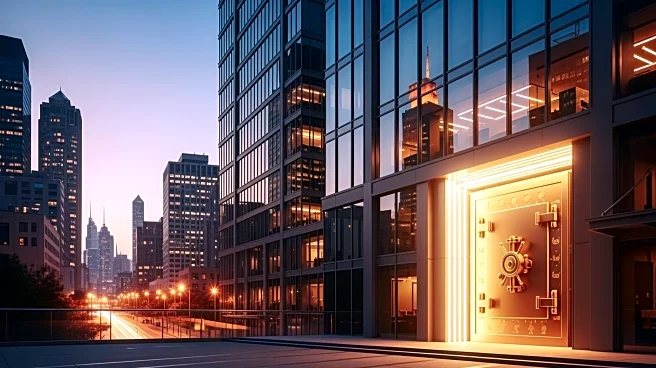What's Happening?
Manhattan's commercial real estate sector has experienced a significant surge in transactions, reaching nearly $5 billion in property sales during the third quarter of 2025. This marks the highest single-quarter
sales since early 2022. The increase is largely attributed to renewed investor confidence in high-quality office assets. Notable transactions include the $1.08 billion purchase of 590 Madison Avenue by RXR and Elliott Investment Management, and the $160 million sale of the former Brooks Brothers Madison Avenue site to SL Green. The office asset sales alone accounted for $3.3 billion, nearly double the activity of the previous quarter and a 74% increase compared to the same period in 2024. Traditional banks and insurers, previously absent from the market, are returning, alongside pension funds and other institutions lending directly.
Why It's Important?
The resurgence in Manhattan's commercial real estate transactions signals a broader recovery in the high-end office market, which had struggled post-pandemic. This trend reflects growing investor confidence and the return of major institutional players, such as SL Green and RXR, to the market. The increased activity could lead to further economic revitalization in New York City, potentially boosting employment and business opportunities in the real estate sector. The shift from private capital to established institutional owners suggests a stabilization in the market, which may attract more investment and development in the future.
What's Next?
Continued energy in the investment-sale market is anticipated, with major institutional owners likely to dominate future transactions. The underlying strength of New York City’s real estate market is expected to persist, potentially overriding political changes. As traditional lenders return, the market may see more competitive financing options, encouraging further investment. However, challenges remain, such as the need for city authorities to address issues like sidewalk hustlers on Canal Street, which could impact retail and commercial development in certain areas.
Beyond the Headlines
The resurgence in Manhattan's commercial real estate transactions could have long-term implications for urban development and economic growth in New York City. As institutional investors regain confidence, there may be increased pressure on city infrastructure and services to support new developments. Additionally, the shift from private capital to institutional ownership could influence real estate pricing and availability, impacting small businesses and local communities.









